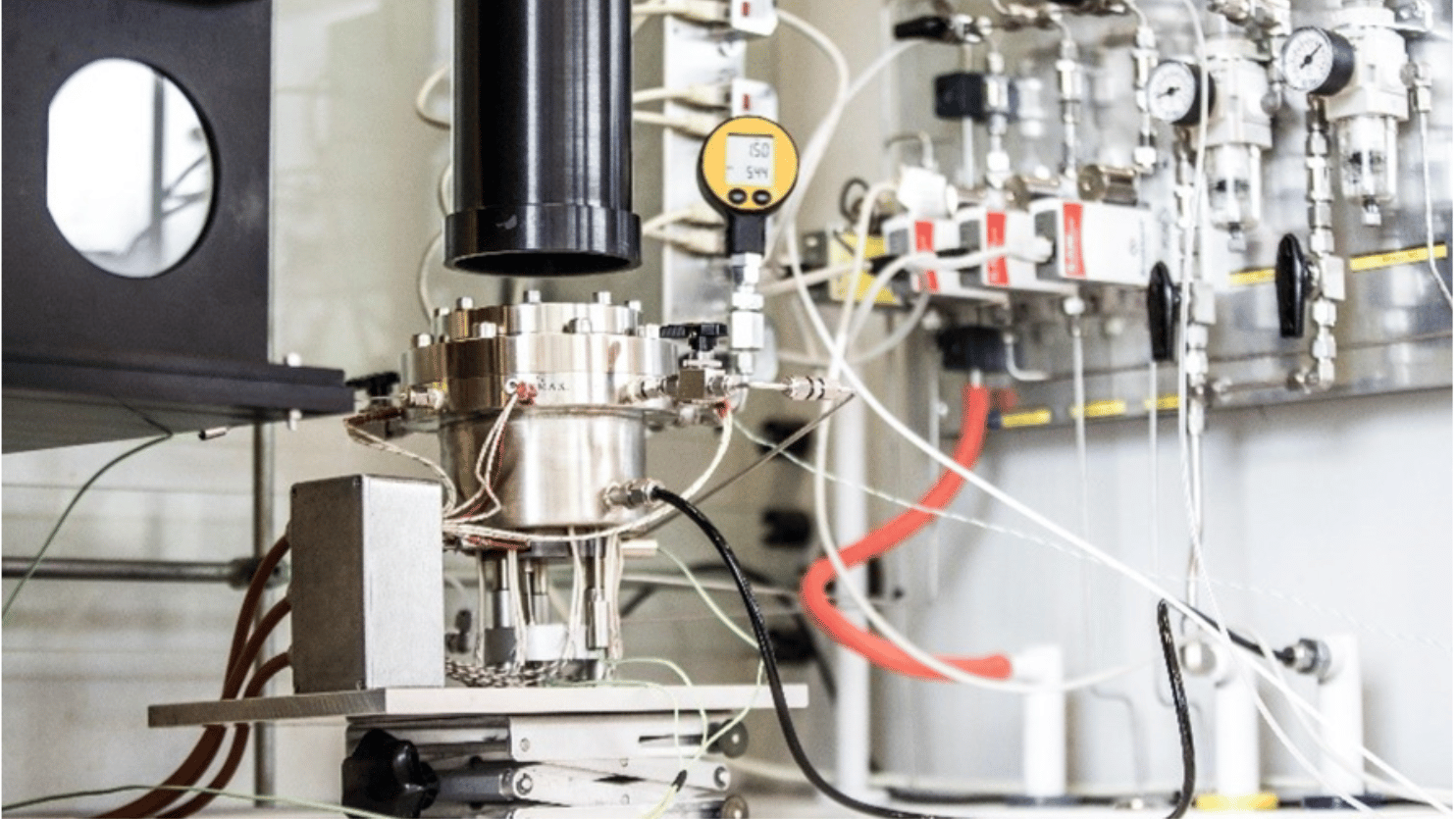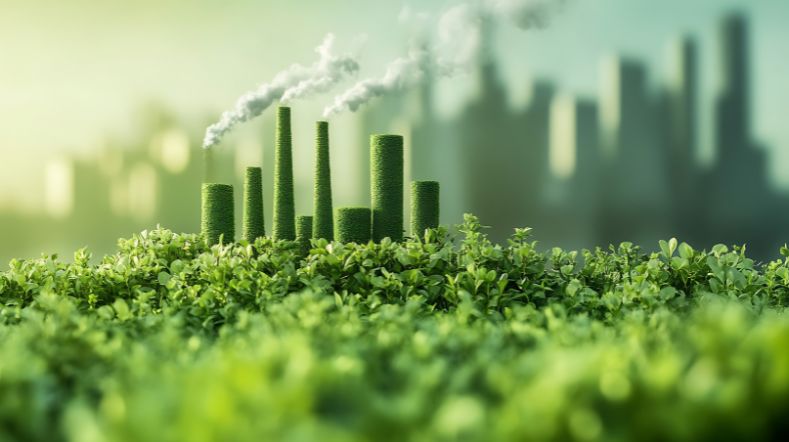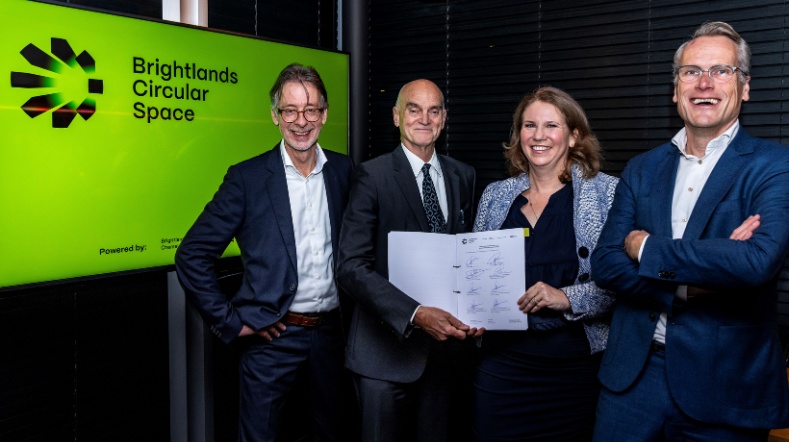Energy Storage & Conversion
TNO collaborates with universities and industry to develop new concepts that convert sunlight into chemical energy. Carbon dioxide and hydrogen are converted to C1 chemicals and fuels in a photocatalytic process, in which metal catalyst particles are used on the nanoscale.
In the last decades, the massive use of fossil fuels had a big impact on the emissions of carbon dioxide (CO2). A strong acceleration is needed to timely transform the Dutch energy landscape from the current fossil fuel based one to a CO2 neutral renewable energy infrastructure as accorded by the EU and the Dutch developed agenda for Energy (Energie Agenda). Conversion and storage of renewable energy are pivotal for achieving this change.
Our focus
With Energy Storage and Conversion we focus on the use of renewable energy, i.e. renewable electricity and sunlight, CO2 and green hydrogen (H2) as a feedstock to produce C1 chemicals and fuels, which provides a great opportunity to store energy to overcome the inherent fluctuations in supply of renewable energy, and the spatial and temporal mismatch between demand and supply. It changes the actual energetic system towards a sustainable system and simultaneously implements a CO2 neutral system.
Routes to come to technically and economically viable technologies and processes are pursued, and feasibility will be demonstrated on laboratory scale (up to TRL 4).
Photons-to-chemicals is focused on the conversion of CO2 to C1 chemicals and fuels, using sunlight as energy source for driving the reaction.
Photochemical water splitting for sustainable hydrogen production
The potential of photochemical water splitting as a technology to produce H2 at lower costs than the conventional route via electrolysis is being investigated. Photolysis of water has a good perspective on the long term for cost-effective production of green hydrogen gas. Hydrogen gas is a promising energy carrier, but current hydrogen production processes are unsustainable and/or too expensive. Photochemical water splitting is an alternative process that enables sustainable hydrogen production from water using the energy from sunlight. The aim of this work was to develop a system for producing hydrogen via photo(-electro)chemical water splitting and to evaluate the business case of the selected process.
Photochemical conversion with nanoparticles
For the photochemical conversion of CO2 to C1 chemicals/fuels using sunlight as energy source a new generation of photoactive materials to produce solar fuels from CO2 is under development. Based on the localized plasmon resonance of nanoparticles, nano-dispersed materials are produced with large dispersion area and active phase that are able to reduce the CO2. The concept of plasmon catalysis was successfully demonstrated for photochemical hydrogenation of CO2 to methane. Energy Storage and Conversion has established strong strategic partnerships with key academic and industrial players in the Netherlands on energy storage in molecular bonds.

Lab scale batch photo reactor
TNO has a solid track record in the preparation of nanoparticles and microparticles and the development of functional coatings for a variety of applications. The expertise and competence of TNO includes the development and characterization of nanoparticle catalysts, chemical conversion studies, reaction kinetics and efficiency of energy conversion.
Get inspired
Power-to-X: cornerstone for decarbonisation and economic resilience of the chemical industry


Western North Brabant becomes hotspot for biobased building blocks for the construction industry


New facility to develop circular plastics on an industrial scale


TU Delft and TNO prepare industry for scale-up phase of clean factory

Collaboration for European platform on industrial transformation



